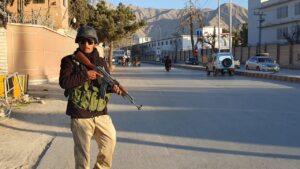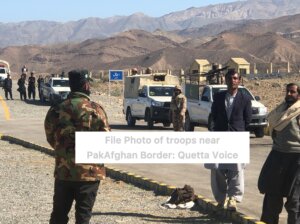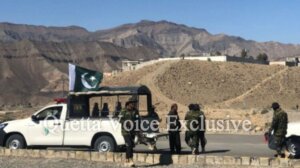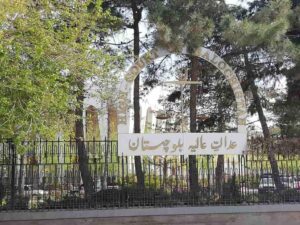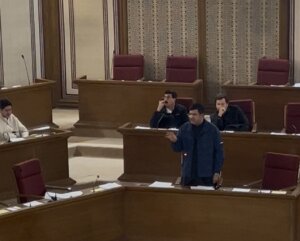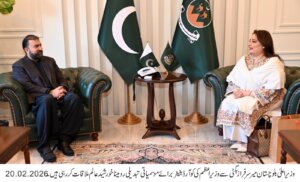Editorial:
As the political landscape of Balochistan gears up for the upcoming general elections on February 8, 2024, the province finds itself at a crucial juncture, facing multifaceted challenges that demand careful consideration and thoughtful decision-making from its residents. The list of candidates vying for leadership reflects the diverse voices and aspirations of the people, and voters must make wise and informed choices for the betterment of the province and the nation.
Maulana Fazal ur Rehman’s decision to contest the elections in NA-265 comes at a time when the political dynamics in Dera Ismail Khan are undergoing significant changes, with the Pakistan Tehreek-e-Insaf (PTI) gaining momentum. The pressures and challenges in his home city have compelled the Chief of Jamiat ul Ulema e Islam (JUI) to step into the political arena, presenting a unique opportunity for voters to evaluate his vision for addressing the issues faced by the region.
Akhtar Mengal, Mehmood Achakzai, Dr. Malik Baloch, Jam Kamal, Nawab Aslam Raisani Contesting Elections
Balochistan, with its vast and diverse population, is home to leaders with distinct political affiliations. Mehmood Khan Achakzai of Pakhtunkhwa Milli Awami Party (PKMAP), Sardar Akhtar Jan Mengal of Balochistan National Party (BNP), Dr. Abdul Malik Baloch of National Party (NP), former Chief Ministers, Nawab Muhammad Aslam Raisani, Jam Kamal Khan, Nawab Sanaullah Zehri, Sardar Saleh Bhootani, Khushal Khan Kakar of Pakhtunkhwa National Awami Party (PNAP), and Maulana Muhammad Khan Sherani of Jamiat ul Ulema e Islam Pakistan are among the prominent figures contesting in this crucial election.
The province, however, grapples with persistent challenges, ranging from backwardness and a sense of deprivation to issues related to education, health, and the impending threat of climate change. The candidates must not only articulate their plans for tackling these issues but also demonstrate a commitment to fostering unity and collaboration to bring about positive change.
The Elected Leaders Must Prioritize Inclusive Policies
Backwardness and a sense of deprivation have long plagued Balochistan, hindering its progress and development. The elected leaders must prioritize inclusive policies that bridge the gaps between urban and rural areas, ensuring equitable distribution of resources and opportunities.
Education and health are fundamental pillars of societal development. The candidates should present comprehensive plans for improving the education system, ensuring access to quality healthcare, and addressing the specific needs of Balochistan’s diverse population.
Looming Threat Of Climate Change Poses A Significant Threat To The Province
Furthermore, the looming threat of climate change poses a significant challenge to the province. Leaders must advocate for sustainable policies that protect the environment, support local communities, and mitigate the adverse effects of climate change on agriculture and livelihoods.
In this critical moment, voters hold the power to shape the future of Balochistan and contribute to the progress of Pakistan as a whole. It is incumbent upon them to carefully evaluate the candidates’ platforms, assess their commitment to addressing the pressing issues, and choose leaders who can navigate the complexities of governance with vision and integrity.
The forthcoming elections provide an opportunity for Balochistan to rise above political divides and work towards a future that prioritizes the welfare of its people. By making a wise decision at the ballot box, voters can contribute to building a stronger, more prosperous Balochistan that stands resilient in the face of challenges, united in its pursuit of progress and development.

